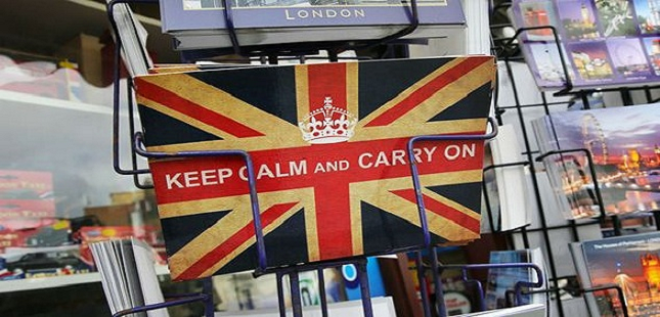Advertisement
Advertisement
Markets Stress Lowers After Theresa May Becomes UK Prime Minister
By:
It seems that UK Prime Minister is conquering market fears. Equities and currencies were positive as stress left market place on Wednesday after prime
It seems that UK Prime Minister is conquering market fears. Equities and currencies were positive as stress left market place on Wednesday after prime minister being appointed by Queen Elizabeth shortly after the monarch accepted David Cameron’s resignation.
An official image showed May curtsying to the queen during an audience at Buckingham Palace. Under Britain’s unwritten constitution, it is up to the monarch to ask the leader of the party that commands a majority in the House of Commons to form a government. The pound rebounded over the past two days and continued this morning in the Asian session gaining 1% trading at 1.3270. As one of her first acts Ms. May appointed her opponent Boris Johnson as Foreign Minister. The FTSE soared to a high of 6717.Currently is trading at 6668.50.
[wibbitz]ba0eb13e585ea40839efbba31393b9ca4[/wibbitz]
With the shift in market sentiment the Japanese yen soared to trade at 105.64 against the US dollar and at 117.45 against the euro. Politics in Japan as well as the UK helped support the risk on sentiment shift after Prime Minister Abe was reelected and has promised more aggressive action. At a meeting of the Council on Economic and Fiscal Policy on Wednesday, private-sector representatives proposed the government use part of the around ¥1.7 trillion that came from a larger-than-expected tax revenue increase to fund policies aimed at enhancing welfare in the fiscal 2017 budget.
“We need to take steps, including making use of Abenomics’ achievements, so we can steadily implement policy steps,” Abe told the meeting, referring to his economic and fiscal policy.
Such policies include improving working conditions for employees working at nursing homes and childcare facilities.
The prime minister also requested his ministers to “make their utmost efforts” to lift the country’s minimum wage by 3 percent to boost disposable income.
The Nikkei 225 added 1.5% closed at 16460 as Prime Minister Shinzo Abe promised a large fiscal stimulus to boost the economy after his coalition clutched a super majority in the parliamentary election over the weekend.
Also boosting Japan’s stock market is a strong U.S. jobs beat.
Abe has asked his cabinet to start drawing up stimulus package, reported Dow Jones Newswires.
Think about more high-speed rail in Japan! The government will speed up construction of bullet trains and push forward by up to 8 years the completion of maglev train networks as part of the stimulus package. As such, Abe said Japan would issue construction bonds, for the first time in 4 years. The benchmark Nikkei 225 was up 0.71 percent, while the Topix was up 0.69 percent. Across the Korean Strait, the Kospi was down 0.18 percent.
The Aussie saw gains in the Asian session as the monthly unemployment and jobs report printed better than expected. The Aussie added 28 points to 0.7625. Employment rose only modestly in June while the unemployment rate ticked up to 5.8 percent, yet a sharp jump in full-time jobs was welcomed by investors who nudged the local dollar higher.
Thursday’s data from the Australian Bureau of Statistics showed 7,900 net new jobs were created in June, after a 19,200 gain the month before. Full-time employment impressed with an increase of 38,400 as such positions tend to pay much better than temporary work.
About the Author
Barry Normanauthor
Advertisement
